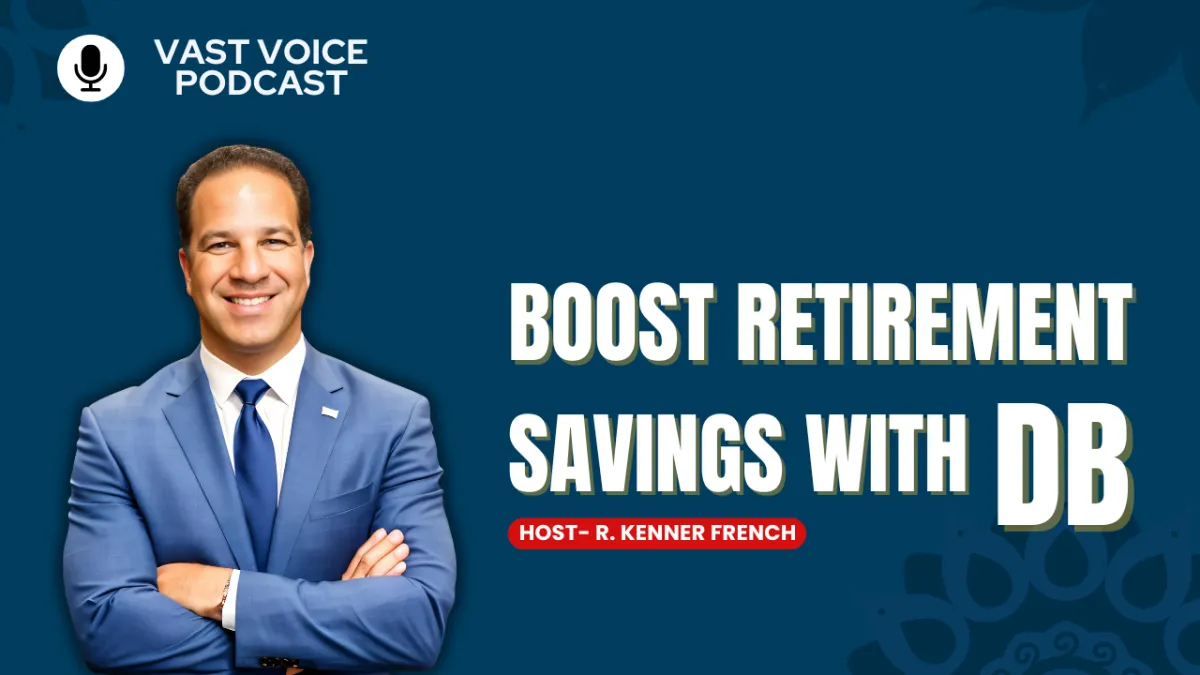
Boost Retirement Savings With DB!
Defined benefit plans are powerful retirement and tax-saving tools for business owners, yet they can seem highly technical and overwhelming. Unlike 401(k)s where employees contribute individually, defined benefit (DB) plans are employer-sponsored, with the company making large contributions on behalf of the participant—often the business owner. This structure allows much higher contribution limits, sometimes hundreds of thousands of dollars annually, providing significant tax deferral and accelerated retirement savings.
To operate correctly, a DB plan requires the involvement of an actuary. The actuary determines contributions based on factors like participant age, expected rate of return, and retirement goals. These calculations ensure that the plan can deliver a guaranteed monthly benefit during retirement. While this makes DB plans more complex and costly to administer compared to 401(k)s, the advantages—larger contributions, lower tax liability, and higher long-term retirement savings—often outweigh the costs.
Plan sponsors must be mindful of investment risk. If portfolio performance falls short, additional contributions may be required to “true up” the plan, especially when employees are involved. For solo entrepreneurs, this risk is less concerning, but it still requires careful investment oversight. DB plans are generally aligned with more conservative investment strategies and long-term liability matching, ensuring that assets and future retirement obligations remain balanced.
Compliance and administration are critical. Sponsors must ensure accurate benefit calculations, proper contribution strategies, and adherence to IRS regulations, including annual reporting and actuarial evaluations. Consultants like Kenner French and his team play a key role in guiding sponsors through these responsibilities, optimizing tax strategies, and ensuring regulatory compliance. Regular plan design reviews, funding adjustments, and communication with participants (when applicable) are essential for smooth plan management.
Ultimately, defined benefit plans can be an exceptional retirement and tax strategy, particularly for entrepreneurs who want to maximize savings quickly. They offer higher contribution limits, substantial tax deductions, and long-term wealth-building opportunities. However, they require ongoing oversight, proper plan design, and collaboration with actuaries and consultants to remain compliant and effective. With the right guidance, DB plans can significantly strengthen both retirement readiness and business financial planning.
Takeaways
• Defined benefit plans are employer-sponsored retirement plans.
• Actuaries play a crucial role in calculating retirement benefits.
• Tax deferral is a significant advantage of defined benefit plans.
• Plan sponsors must ensure compliance with regulatory requirements.
• Investment strategies must align with the plan's long-term goals.
• Effective communication with participants is essential for plan success.
• Defined benefit plans can allow for larger contributions than 401(k)s.
• Regular plan design optimization is necessary for effectiveness.
• Market resilience is a key consideration in investment management.
• Proper administration can lead to substantial tax savings for business owners.
Sound Bites
• You have to have an actuary, really smart person
• You can put away a lot for savings
• You could put away a ton of money, a ton of money
Listen & Subscribe for More:
🎧 The Vast Voice Podcast → Available on Spotify & Apple Podcasts
▶️ Subscribe on YouTube (@VastSolutionsGroup.com) for expert insights 🚀
📚 Don’t miss Modern Millions by R. Kenner French – the #1 BEST SELLING Amazon book (Entrepreneurship category) 👉 ModernMillions.ai
📚 Amazon Top Selling Author→ https://www.amazon.com/dp/B0FHBS32LG
Got Questions? Reach Us Anytime:
📞 415-212-8189
🕗 Monday–Thursday | 8:00 AM – 5:00 PM (Pacific)
🙏 Thank you for listening & supporting!
